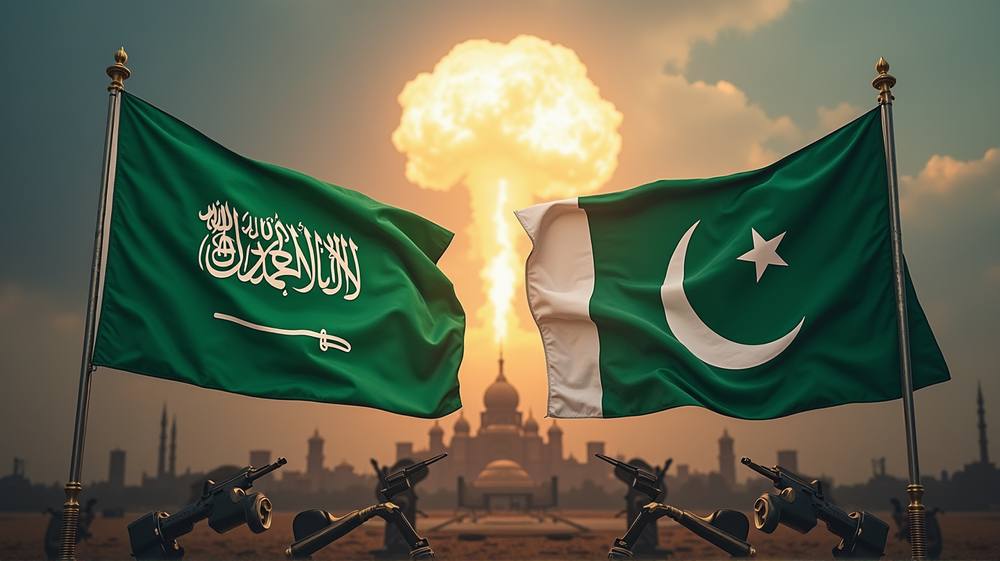In a pivotal move shaped by the volatile dynamics of the Middle East, Saudi Arabia and Pakistan have formalized a mutual defense pact, a strategic alliance crafted in response to recent military escalations. The accord, signed by Saudi Crown Prince Mohammed bin Salman and Pakistani Prime Minister Shehbaz Sharif, marks a historic realignment in regional defense strategies against the backdrop of Israel’s recent attacks on Qatar.
Reactions and Implications
The unprecedented agreement between Saudi Arabia and Pakistan has raised eyebrows globally, with concerns voiced by diplomats like Zalmay Khalilzad. “This pact comes at dangerous times,” commented Khalilzad, highlighting the potential reach of Pakistan’s arsenal, capable of striking deep into the Middle East.
A Historic Defense Relationship
Saudi Arabia’s relationship with Pakistan traces back decades, bonded over religious ties and regional security concerns. Pakistan’s military support to Saudi Arabia dates to the late 1960s, a time marked by regional unrest and the rise of Tehran’s influence post-1979.
A Nuclear Ambiguity
While the defense pact doesn’t explicitly mention nuclear capabilities, analysts note the symbolic gesture of enveloping Saudi Arabia under Pakistan’s strategic umbrella. Historically, Pakistan maintains an ambiguous stance on its nuclear doctrine, which leaves room for strategic maneuvers without overt declarations.
Regional and Global Stability
The Indian Foreign Ministry has expressed caution, planning to evaluate the security implications following this accord. Both Islamabad and Riyadh have refrained from discussing potential nuclear cooperation within the pact, leaving space for speculation and diplomatic discourse.
Conventional Strength and Strategic Assurances
Despite the nuclear undertones, security analyst Syed Muhammad Ali asserts Pakistan’s existing military capabilities as robust enough to deter aggression without nuclear escalation. The underlying message of the pact reiterates strong defense cooperation and joint deterrence strategies.
According to NBC News, experts suggest this could shape the future dynamics of regional security, establishing new paradigms for alliances in the context of Middle Eastern geopolitics. As these developments unfold, the global stage watches closely, evaluating the impacts on local and international stability.












